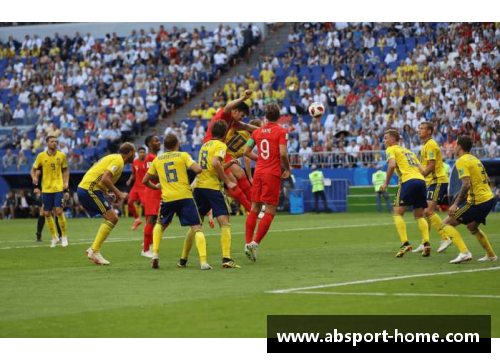英格兰足球:未来球星的培养与发展
An overview of the development and cultivation of future football stars in England is crucial for sustaining the nation's competitive edge. This article explores key aspects of this process, from youth development programs to the role of academies and coaching methodologies. It also examines the impact of grassroots initiatives and the importance of mental and physical development in shaping the next generation of English football talent.
1、Youth Development Programs
England's youth development programs form the bedrock of future football stars. These programs emphasize early talent identification and provide structured coaching from a young age. Talent scouts scour local leagues and school competitions for promising youngsters, nurturing them through specialized training camps and academies. The Football Association (FA) invests heavily in these programs to ensure a steady pipeline of talent for national teams.
Academies affiliated with top clubs like Manchester United and Chelsea offer state-of-the-art facilities and expert coaching. Young players benefit from a holistic approach that balances technical skills with tactical understanding and physical conditioning. Regular tournaments and matches against international youth teams expose them to different playing styles and enhance their competitive edge.
Graduates of these programs often transition seamlessly into professional club academies, where they continue to refine their skills under the mentorship of experienced coaches and former players.
2、Role of Academies
Academies play a pivotal role in shaping the careers of England's future football stars. These academies, run by professional clubs, provide a nurturing environment where young talents can flourish. They offer a structured pathway from youth teams to senior squads, focusing on technical proficiency, tactical awareness, and psychological resilience.
Top academies prioritize individual development plans tailored to each player's strengths and areas needing improvement. They foster a culture of excellence and discipline, instilling values that extend beyond the pitch. Modern academies integrate sports science and data analytics to optimize performance and minimize injury risk.
Academy graduates often secure professional contracts with their parent clubs or move to other teams on loan to gain valuable playing experience. The success of academies in producing homegrown talent enhances club identity and strengthens the national team.
3、Grassroots Initiatives
Grassroots initiatives form the foundation of England's football pyramid, ensuring broad participation and talent identification across diverse communities. Local clubs and schools provide accessible opportunities for young players to develop their skills and passion for the game.
The FA's grassroots strategy focuses on inclusivity and accessibility, offering coaching courses and resources to grassroots coaches. This grassroots network not only fosters talent but also promotes social cohesion and community pride through football.
Talented players identified at the grassroots level are often scouted by professional clubs or invited to regional development centers for further assessment. Grassroots football serves as a fertile ground for discovering raw talent and nurturing it through structured pathways.
4、Mental and Physical Development
The holistic development of young footballers encompasses both physical fitness and mental resilience. Sports psychologists and fitness trainers work alongside coaches to optimize players' mental health and physical performance.
England's top clubs prioritize mental conditioning programs to prepare young players for the pressures of professional football. Techniques such as visualization, mindfulness, and resilience training equip players to cope with setbacks and perform consistently under pressure.
Physical development programs focus on injury prevention, nutrition, and strength training tailored to age-specific needs. Comprehensive medical support ensures that players receive timely treatment and rehabilitation, minimizing the impact of injuries on their development.
总结:
Developing future football stars in England requires a multifaceted approach encompassing youth development programs, professional academies, grassroots initiatives, and comprehensive mental and physical development. By investing in these areas, England not only strengthens its club football but also enhances the competitiveness of its national teams on the global stage.

This holistic approach ensures that young players are not only technically proficient but also mentally resilient, prepared to excel in the demanding world of professional football. With continued investment and innovation, England's future football stars are poised to make significant contributions to the sport both domestically and internationally.
ab娱乐官网